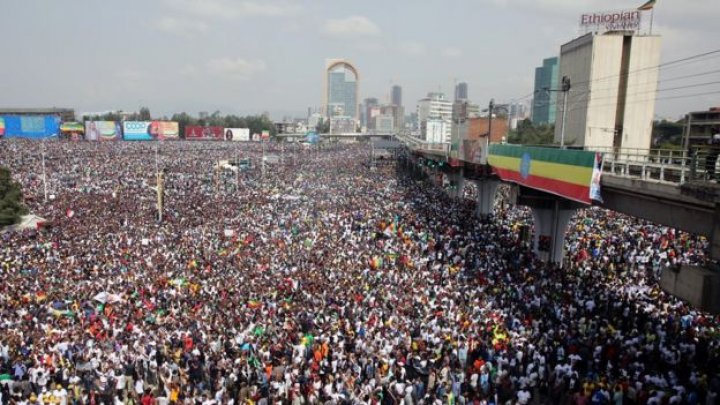Explosion during political rally in Ethiopian: Two people dead and dozens more are injured
 foto: BBC // Reuters
foto: BBC // Reuters
Ethiopian officials say two people have died and dozens more are injured, after an explosion at a huge political rally for the new Prime Minister Abiy Ahmed.
Mr Abiy described it as an "unsuccessful attempt by forces who do not want to see Ethiopia united".
He was whisked away immediately after the blast, thought to be from a grenade thrown amid thousands of people in Addis Ababa's Meskel Square.
The capital's deputy chief of police is in custody over security lapses.
A further eight policemen have been detained and are under investigation for failing to secure the site.
Ethiopia's health minister tweeted that two people had died. He said 44 people remained in hospital, five of them in a critical condition.
Mr Abiy only became prime minister after his predecessor Hailemariam Desalegn unexpectedly resigned in February.
He is also the country's first leader from the ethnic Oromo group, which has been at the centre of nearly three years of anti-government protests that have left hundreds of people dead.
Since taking office he has begun passing a series of reforms, including unblocking hundreds of websites and TV channels.
He has also said he is ready to implement in full a peace deal with Eritrea that was signed in 2000 after a two-year war.
Eritrea has condemned the attack on Mr Abiy's rally. Its ambassador to Japan Estifanos Afeworki said on Twitter the rally had been a "demonstration for peace", which he called the first of its kind "in history of Ethiopia".
The US embassy in Addis Ababa also condemned the blast, tweeting: "Violence has no place as Ethiopia pursues meaningful political and economic reforms."
On Friday an Ethiopian rebel group suspended its armed resistance against the government.
Ginbot 7, based in Eritrea, said Mr Abiy's reforms had given it hope that "genuine democracy" may be "a real possibility".
The Ethiopian government has been accused of human rights violations including torture and extrajudicial killing of political dissidents.
Read more on BBC.